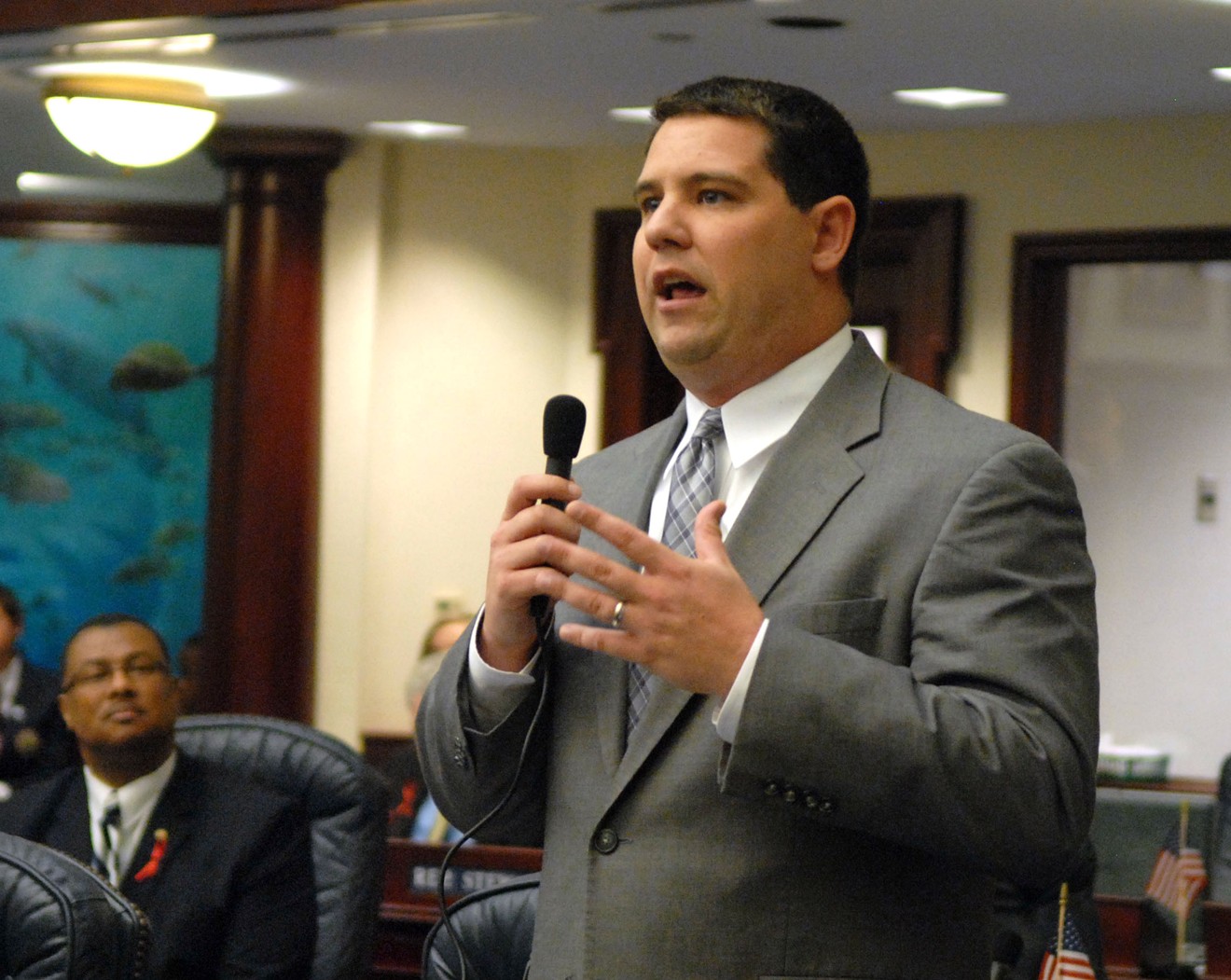Last Thursday, North Florida State Sen. Travis Hutson filed S1028, a bill that would give the state control over how "local funding approved by voter referendum" is apportioned. The provision applies to Florida Statute 1022.33 — the state law that authorizes charter schools.
"District school boards shall receive a proportional share, based on student enrollment, of local funding approved by voter referendum, including referenda authorized by s. 1011.71, for all funds that are not otherwise provided in the Florida Education Finance Program under s. 1011.62 or the General Appropriations Act," the bill reads.
That may sound like esoteric legal jargon, but United Teachers of Dade president Karla Hernandez-Mats is crying foul. She tells New Times the bill's impact is clear: The "proportional share" clause would all but certainly guarantee charter schools get a "portion" of any money that's supposed to go to public
"Here we see how they're trying to circumvent local control of school boards," Hernandez-Mats told New Times yesterday. "We’ve always been really clear: This money was for public
The bill would likely impact her district in one of two ways, she says. Either it would place pro-charter regulations on any new future referenda that might get approved, or, worse, impact funding for the upcoming fiscal year. (The bill is unlikely to be retroactively applied to the 2018 referendum, but anything is possible in Tallahassee.) She added the only reason public schoolteachers felt they needed to demand a pay raise at the ballot box last year was that state lawmakers have been largely indifferent to their concerns for years — dating back to charter-school evangelist Jeb Bush's tenure as governor.
She also pointed out that Hutson, the state senator who filed the bill, does not represent a county that passed a school pay raise last year.
"It feels very disingenuous from the person who filed it, " she said. "His community has did not have a referendum, so it's odd."
Hutson did not respond to a message from
The Tallahassee Democrat warned this week that the tactic undermines progressive small towns and puts legal control in the hands of the state's more conservative and pro-corporate Legislature.
The bill also comes as public education unions are heaping criticism on Gov. Ron DeSantis for proposing a massive new "school voucher" program that would give kids public tax dollars to subsidize tuition at private schools. Critics argue the measure might be unconstitutional and appears to redefine public education. DeSantis has nonsensically claimed that any school, whether owned by taxpayers or private companies, can be considered "public" if it gets public subsidies. In response, the Tampa Bay Times editorial board said this week DeSantis' ideas were "absurd."
Hernandez-Mats agrees. "The only thing 'public' about the charter industry is that they take and utilize public money," she said. "When they go bankrupt and out of business, that land, that money invested to buy property, does not go back to taxpayers."












